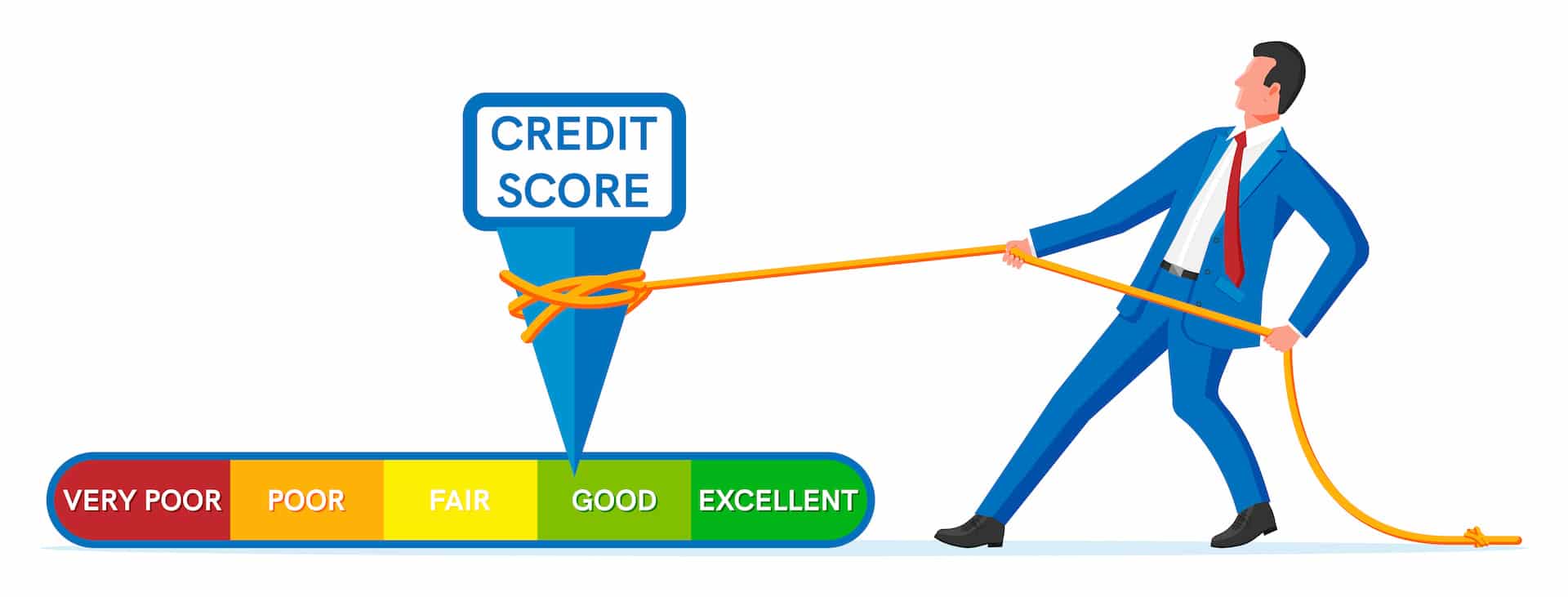Table of Contents:
- Understanding Net 30 Accounts
- Impact on business creditworthiness
- How long does it take to build business credit?
- Factors influencing credit building
- Pro tips for maximizing Net 30 Account
- Additional credit-building strategies
- Conclusion
Summary:
|
Entrepreneurship is exciting yet daunting. It comes with the potential for significant personal and professional growth. The daunting part is tied to immense risks and responsibilities. Entrepreneurship requires financial stability, and maintaining strong business credit is a crucial part.
It’s proof of your efficient financial management. One effective way to boost your business credit score is using Net 30 accounts.
So, what exactly is Net 30? How long does it take to build business credit score with Net 30 accounts?
Understanding Net 30 Accounts
A Net 30 account is a type of trade credit that gives you 30 days to pay without any interest being added. This means you can procure the necessary goods or services and have time to generate revenue before the bill is due. These accounts are not just a convenience; they’re a crucial tool for new and growing businesses aiming to improve their cash flow without immediate cash outflow.
Role in Cash Flow Management
Managing cash flow efficiently is one of the biggest challenges in business. With Net 30 accounts, you can keep cash on hand longer, which is invaluable for handling unexpected costs, investing in opportunities as they arise, and generally maintaining a smooth operational flow.
Impact on Business Creditworthiness
By paying your dues on time, you build a solid payment history. Credit bureaus view timely payments as a signal of reliability and financial responsibility, gradually boosting your business credit score.
How Long Does It Take to Build Business Credit?
Building business credit is an ongoing process, but with consistent effort and strategic use of tools like Net 30 accounts, you can start seeing positive results within the first year.
Establishing a strong credit profile typically takes around three years of responsible credit management.
The Formative Months: Initial Steps
Begin by registering your business officially by obtaining an EIN (Employer Identification Number) and a DUNS number. These numbers are like your business’s social security numbers, allowing credit bureaus to track your financial activities. Also, open a dedicated business bank account.
Within the First Year: Nurturing Creditworthiness
As you consistently make timely payments on your Net 30 accounts, you’ll notice emerging signs of creditworthiness. You will start getting additional credit opportunities, serving as a testament to your financial responsibility. The key is to nurture these early wins by maintaining diligent payment habits.
The Three-Year Mark: Achieving an Enhanced Credit Profile
By the time your business hits the three-year mark, maintaining a robust credit mix becomes crucial. Expanding beyond Net 30 accounts to include business credit cards or small loans can propel your credit profile to new heights.
Factors Influencing Credit Building
- Age of Your Business
- Credit Mix and Payment History
- Credit Utilization and Industry Challenges
1. Age of Your Business
New and budding businesses generally take longer to establish a sturdy credit profile.
Without a long-standing financial history, it can be challenging to prove creditworthiness. However, every diligent step you take in managing your finances and obligations adds credibility.
2. Credit Mix and Payment History
Including varied credit accounts, such as Net 30 accounts, business credit cards, and small business loans, enriches your credit profile and accelerates your credit-building process. Consistently making punctual payments solidifies your business’s reputation for reliability. A single late payment can cast a shadow over your efforts, emphasizing the necessity for impeccable payment discipline.
3. Credit Utilization and Industry Challenges
Keeping your utilization low, ideally below 30%, demonstrates responsible credit management.
Certain industries and small businesses face unique challenges in building credit due to a variety of factors, including the nature of their operations and business structure. These industries and businesses include:
- Service-based industries
- Startup and tech industries
- Seasonal businesses
- Gig economy and independent contractors
However, strategic planning and consistent effort can help establish a respectable credit profile.
Pro Tips for Maximizing Net 30
Strategic Vendor Selection
Opt for reputable suppliers who report payment history to major credit bureaus. This ensures your diligent payment behavior contributes positively to your credit score.
Importance of Timely Payments
Timely payments are the cornerstone of building and maintaining a robust credit profile. Even a slight delay can tarnish your credit record. So, establish processes to prioritize paying your vendors on time, every time.
Monitoring Your Credit Report
Monitoring your business credit report enables you to catch errors or discrepancies that might affect your score. Major credit bureaus such as Dun & Bradstreet, Equifax, and Experian provide insights into your credit status, allowing you to address any issues proactively.
Exploring Additional Credit-Building Strategies

Secured Business Credit Cards
Secured business credit cards are an excellent starting point, especially for businesses with limited or no credit history. These cards work by requiring a cash deposit that serves as collateral, securing the credit limit offered.
The primary advantage is that they allow you to establish or rebuild your credit through responsible use and timely payments. As your credit score improves, you’re likely to qualify for unsecured credit cards with higher limits and more perks.
Small Business Loans
Small business loans can be a powerful tool for credit-building. When taking out a loan, it’s crucial to ensure that repayment terms align with your business’s cash flow capabilities.
Credit Reporting Services
Investing in credit reporting services can be a game-changer. These services specialize in collecting and reporting your payment activities, ensuring that your efficient financial management is recognized and reflected in your credit score.
Trade Credit
Consider establishing trade credit with more suppliers. This allows you to extend payment terms beyond immediate payment for goods and services. Developing trade lines with multiple vendors further diversifies your credit profile.
Expanding Your Credit Mix
Beyond specific financial products, focus on expanding your overall credit mix. This means balancing your use of credit cards, loans, and trade credits. A well-rounded credit portfolio indicates a comprehensive financial strategy and can positively influence credit scoring algorithms, reinforcing your business’s financial stability.
Conclusion
So, how long does it take to build business credit? By understanding the nuances of Net 30 accounts and diligently managing your finances, your business can develop a strong credit profile over time.
Frequently Asked Questions
Q1. What is a Net 30 account, and how does it help my business credit?
A Net 30 account is a form of trade credit that allows you to purchase goods or services and pay the invoice within 30 days without interest. By consistently paying your Net 30 invoices on time, you establish a positive payment history, which is a key factor that business credit bureaus use to calculate your credit score.
Q2. How long does it typically take to build business credit with Net 30 accounts?
While building business credit is an ongoing process, you can start seeing positive results within the first year of consistent, timely payments. Establishing a strong credit profile generally takes about three years of responsible credit management, which includes not only Net 30 accounts but also other credit-building strategies.
Q3. What can I do to speed up the process of building business credit?
To maximize your credit-building efforts, you should strategically select vendors who report to major business credit bureaus like Dun & Bradstreet, Equifax, and Experian. It’s also crucial to maintain a diverse credit mix by using a combination of Net 30 accounts, business credit cards, and small business loans. Regularly monitoring your credit report for errors and keeping your credit utilization low (ideally below 30%) are also key to accelerating your credit-building journey.
Q4. What are some other strategies I can use alongside Net 30 accounts to build my business credit?
Beyond Net 30 accounts, you can enhance your credit profile through several other strategies. Consider applying for a secured business credit card, which can help you establish a credit history with a cash deposit as collateral. Additionally, taking out a small business loan and making timely payments on it can boost your credit mix. You can also work with credit reporting services for vendors that don’t report to major bureaus to ensure all your responsible payment activities are recognized.









